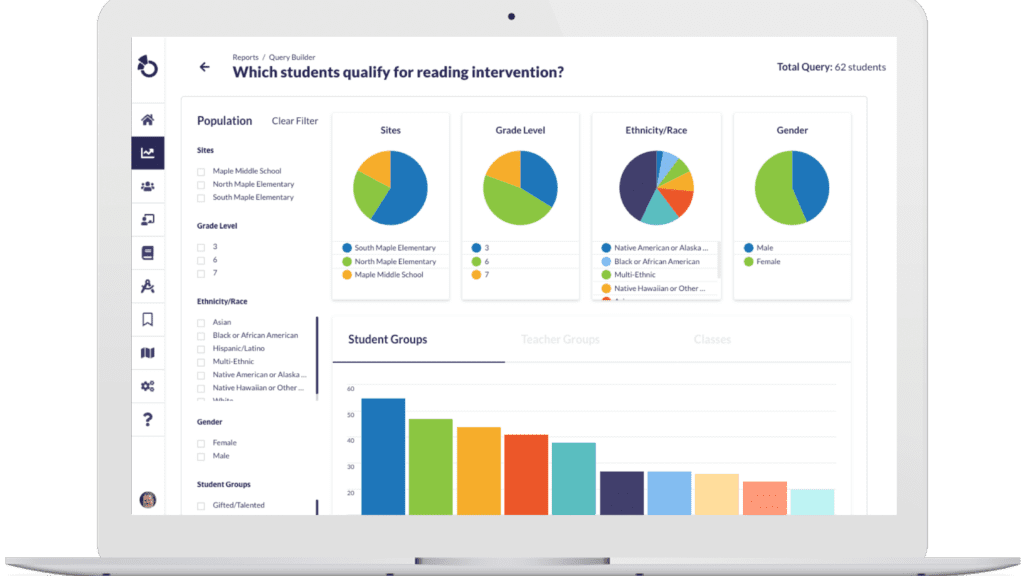Maximizing LCAP Success: Insights from a California School Data Expert
By: David Specht
Navigating the complexities of the Local Control Accountability Plan (LCAP) can be a daunting task for California schools, particularly for charter schools, where renewal requirements add an extra layer of accountability. From ensuring compliance with state requirements to tracking and reporting progress, many schools find themselves overwhelmed by the data and the processes involved. Annice Weinstein, Senior Manager of Assessment Data & Analysis at EdTec, has spent over a decade helping California charter schools overcome these challenges. With her extensive experience in data analysis, assessment systems, and LCAP development, Annice provides the guidance schools need to not only meet compliance requirements but also to use their data to drive meaningful improvements in student outcomes. We had the opportunity to speak with Annice to gain deeper insights into how she supports schools in tackling these challenges head-on.
Four Key Ways California Schools Can Master LCAP Compliance and Drive Success
Use Data to Align Goals and Measure Progress
To achieve LCAP compliance, it's important for schools to align their educational goals with measurable outcomes and track progress consistently throughout the year. This ensures that schools remain on track for internal reporting, while charter schools also meet external renewal requirements. For instance, when schools establish specific goals, such as improving academic achievement or enhancing school culture, it's important that these goals are paired with the appropriate metrics. This allows schools to evaluate their progress effectively and adjust strategies as needed to meet their LCAP objectives.
“There are measures within the LCAP that school leaders can use to evaluate how they're doing on the progress measures they defined for their school. It's important to be looking at those measures over the course of the year so they can stay on track.”
Annice Weinstein
Senior Manager of Assessment Data & Analysis
,
EdTec Inc.

Allocate Funding Strategically to Support High-Need Students
To make the most of the resources provided under the Local Control Funding Formula (LCFF), schools need to focus on supporting students with the greatest needs. This requires not just allocating funds, but also closely tracking the impact of those resources. For charter schools, this tracking is especially crucial for renewal reporting. For instance, when a school receives additional funding to support low-income students or English learners, it's essential to monitor how these funds are used and assess whether they are leading to the desired improvements in student outcomes. By strategically using data, schools can ensure that their investments are making a meaningful difference for the students who need it most.
“If you have a large number of students with high needs, then you’d receive more funding. Now if that happens, the immediate question is, ‘How are you ensuring those funds are used effectively?’ That's where Otus comes into play. While the LCAP outlines where the money is being spent, Otus helps determine whether those funded programs are effective in supporting student needs.”
Annice Weinstein
Senior Manager of Assessment Data & Analysis
,
EdTec Inc.

Leverage Data to Address Chronic Absenteeism
Chronic absenteeism is a significant issue that can seriously impact student performance. Schools need to proactively identify and address this issue to avoid declines in overall student outcomes. Using data from Otus, schools can generate reports that highlight the performance gap between chronically absent students and those who attend regularly. This data not only helps educators identify trends in absenteeism and low performance but also allows them to implement targeted interventions to address these challenges. Additionally, it can be helpful in educating the community, including families and staff, about the importance of regular attendance and the tangible impact it has on student success.
“For our schools, we track chronic absenteeism. So at the midyear point, we'll import your total absences and absence rate to see who's on track to be chronically absent because you want to try to catch those. It doesn't help you to catch it at the end of the year. Right? They're already chronically absent. But if you can catch them midyear before they're chronically absent, that could help you a lot in trying to take down your chronic absenteeism.”
Annice Weinstein
Senior Manager of Assessment Data & Analysis
,
EdTec Inc.
Simplify Data Access for Teachers and Administrators
To drive success with LCAP, it’s key for educators to be able to easily access and interpret data. Otus provides a user-friendly interface that simplifies data management, making it easier for teachers and administrators to view and act on the information in a meaningful way. With Otus, teachers who are not as tech-savvy or well-versed in data analysis can still quickly see relevant student information, such as academic performance or attendance patterns, without having to navigate complex systems. This ease of access ensures that everyone is looking at the same data, fostering consistency and clarity across the school.
Streamline Your LCAP Reporting With Otus
Otus provides educators and school leaders with tools to comprehensively view and assess student performance, essential for LCAP reporting. With Otus, schools can easily monitor progress toward California state standards, identify students needing intervention, and track performance by student groups such as at-risk students.
Schedule a demo today to simplify your LCAP reporting and maximize your impact.
About EdTec
EdTec is a social enterprise committed to improving public education by supporting charter schools with business, operations, and performance services. EdTec’s mission is to drive quality in the charter school movement by providing the people, expertise, and systems that equip school leadership with operational support, business insights, and performance analyses to promote effective decision-making. To learn more about EdTec’s services, visit their website.
Related Resources
Request a demo!
See exactly how Otus can help your school accelerate student growth and improve student outcomes – all while saving educators time.





